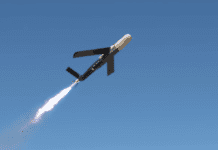This post is also available in:
 עברית (Hebrew)
עברית (Hebrew)
Sci-fi films of the past predicted that by this time the world would be inundated with hackers crashing whole financial systems, power grid, and taking over cars, tanks, and aeroplanes. So far, none of this has materialised. The use of cyber weaponry is complex and differs from one application to the next, according to the needs of the conflict, according to a book from NATO’s cyber-warfare think tank. The synergy of military and digital warfare is still evolving, and is neither streamlined nor straightforward, as some expected.
‘Cyber War in Perspective: Russian Aggression against Ukraine,’ published by the Cooperative Cyber Defence Centre of Excellence in Estonia, appraises the how hacking, denial-of-service, and other digital attacks were used in the Ukrainian conflict, or rather not used.
“The most notable thing about the war in Ukraine… is the near-complete absence of any perceptible cyber war,” wrote Martin Libicki of RAND in a chapter titled, “The cyber war that wasn’t.”
According to Libicki, there has been “vigorous cyber espionage,” but “nothing comparable to the cyber attacks carried out against Estonia in 2007 or Georgia in 2008.” Rather, there have been coordinated small (yet harassing) Distributed Denial-of-Service (DDoS) attacks from “patriotic hacktivists” on both sides, and even use of “old-fashioned bolt-cutters.”
According to the chapter by James Lewis of the Centre for Strategic and International Studies, the conflict was characterised by hybrid warfare with a mix of actions designed to avoid military retaliation. Overall, however, “the use of offensive cyber capabilities for kinetic effect has been minimal, with only a few known incidents,” despite Russia’s extensive skills in this area.


























